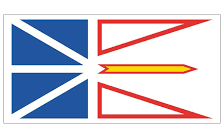In Newfoundland and Labrador, numerous home-based business opportunities are accessible and practical for everyday individuals.
We’ve dedicated time to exploring home-based business ideas specifically suitable for Newfoundland and Labrador’s unique landscape and economy. While many business ideas often demand significant initial investment, we’ve focused on those requiring minimal to no start-up capital.
PDF Download: Discover Funding Opportunities for These 13 Business Ideas Download Funding Guide
Starting a Home-Based Small Business in Newfoundland and Labrador
When choosing a home-based business idea in Newfoundland and Labrador, consider:
- Your personal interests and skills.
- The amount of time you can commit.
- Suitability and passion for the business idea.
- Availability of initial investment funds.
These factors will guide you in selecting the right home-based business idea.
Starting a home-based business here doesn’t necessarily mean quick or effortless income. Unlike traditional businesses, it may require more time and effort due to lower startup costs.
Top Home-Based Business Ideas for Newfoundland and Labrador
- Start a Blog: Focus on topics relevant to Newfoundland and Labrador, like local culture, outdoor adventures, or regional cuisine. Monetizing through ads, product sales, or email marketing can be effective.
- Online Sales: Leverage the power of e-commerce to sell products. This could include locally made crafts, seafood products, or other regional specialties.
- Property Rental: Utilize platforms like Airbnb to rent out spaces, especially during tourist seasons, capitalizing on Newfoundland and Labrador’s scenic landscapes.
- Driving Services: Offer transportation services like Uber or food delivery, catering to both locals and tourists.
- Freelance Writing: With a focus on local content, offer writing services to businesses and tourism agencies within Newfoundland and Labrador.
- Thrift Store and Garage Sale Reselling: Source local unique finds and resell them online for profit.
- E-commerce on Platforms like eBay, Etsy, or Amazon: Sell Newfoundland and Labrador-specific products to a wider audience.
- Home Inspection Services: As real estate grows, provide home inspection services, a necessity in property transactions.
- Tutoring: Offer tutoring services in various subjects, possibly focusing on local history and culture.
- Seasonal Christmas Decoration Business: Cater to local demand for seasonal decorations, leveraging Newfoundland and Labrador’s festive spirit.
- Mobile Vehicle Maintenance: Offer convenient services like oil changes and car washes at customers’ locations.
- Home-Based Daycare: Provide childcare services, tapping into local community needs.
- Photography Business: Capitalize on the picturesque landscapes of Newfoundland and Labrador for photography services.
- Cleaning Services: Start a cleaning business servicing residential and commercial clients.
Each idea is tailored to the unique context of Newfoundland and Labrador, considering local demands and cultural nuances.
Funding and Support: Explore potential funding to support your home-based business in Newfoundland and Labrador. Available grants, loans, and financial aid can help kickstart your venture.
Download Comprehensive Guide to Funding Opportunities in Newfoundland and Labrador
Starting a home-based business in Newfoundland and Labrador offers an opportunity to engage in a market that appreciates local, personalized services and unique regional offerings. With thoughtful selection of a business idea, minimal startup costs, and a strategic approach, your entrepreneurial journey can be both rewarding and successful.





Recent Comments